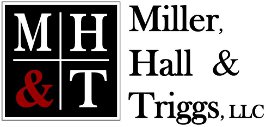Local Government Travel Expense Control Act Necessitates that Local Governmental Bodies Take Action by March 2, 2017
By Richard M. Joseph
On July 22, 2016, Governor Bruce Rauner signed into law the Local Government Travel Expense Control Act (Public Act 99-604). The Act expressly prohibits local governmental bodies from reimbursing employees and elected and appointed officials for “entertainment” expenses and establishes requirements that must be adopted in regards to reimbursement for all travel, meal, and lodging expenses of officers and employees.
The Act applies to all units of local government other than those which are home rule, including non-home rule municipalities, park districts, school districts and community college districts; which such governmental bodies are defined in the Act as “Local Public Agencies.”
The Act requires that all Local Public Agencies shall, by resolution or ordinance, regulate the reimbursement of all travel, meal, and lodging expenses of all officers and employees. The resolution or ordinance is required to specify:
- The types of official business for which travel, meal and lodging expenses are allowed;
- The maximum allowable reimbursement for travel, meal, and lodging expenses (which may be exceeded because of emergency or other extraordinary expenses upon approval of the governing body in manner consistent with the adopted policy);
- A standardized form for submission of travel, meal, and lodging expenses which must be supported by the following (which the Act specifies as the “minimum” required “documentation”):
- An estimate of the cost of travel, meals, or lodging if expenses have not been incurred or a receipt of the cost of the travel, meals, or lodging if the expense has already been incurred;
- The name of the individual who received or is requesting the travel, meal, or lodging expense;
- The job title or office of the individual who received or is requesting the travel, meal, or lodging expense; and
- The date or dates and nature of the official business in which the travel, meal, or lodging expense was or will be expended.
All documents and information submitted in regards to reimbursement are specifically declared to be “public records” and subject to disclosure under the Illinois Freedom of Information Act.
Adoption of a resolution or ordinance establishing the policy and procedures for reimbursement of travel, meal or lodging expenses must occur prior to June 30, 2017, because Section 10 of the Act specifies that no travel, meal, or lodging expense shall be approved by a local public agency after that date unless regulations have been adopted. However, and as a practical matter, the policy and procedures will need to be in place by March 2, 2017, since Section 20 of the Act specifies that on or after 60 days after the effective date of the Act, expenses for travel, meals, and lodging of any officer or employee that exceeds the maximum amount allowed under the adopted policy, may only be approved by roll call vote at an open meeting. Thus, until the policy has been adopted, there is no established “maximum” under the policy and, effectively, all expenses in the interim period from March 2, 2017 to June 30, 2017, require formal action of the governing body.
The Act does not specify or recommend a maximum allowable amount, and, therefore, that is left to the sound discretion of the governing body in establishing the policy.
In addition, on or after March 2, 2017, expenses for travel, meals, or lodging of any member of the governing board or corporate authorities of the local public agency may only be approved at an open meeting of the governing board or corporate authorities of the local public agency.
Finally, the Act specifically prohibits reimbursement for any “entertainment expense” which is defined to include (but not be limited to) shows, amusements, theaters, circuses, sporting events, or any other place of public or private entertainment, unless ancillary to the purpose of the program or event. The Act does not further identify what is meant by “ancillary to the purpose of the program or event” and, therefore, caution should be exercised.
In light of the Government Travel Expense Control Act it is recommended that all non-home rule municipalities, park districts, school districts and community college districts review their existing policies and procedures for reimbursement of employees and officers travel-related expenses, establish maximum allowable reimbursement amounts, create a standardized form, and adopt the policy and standardized form by resolution or ordinance, all by March 2, 2017.

